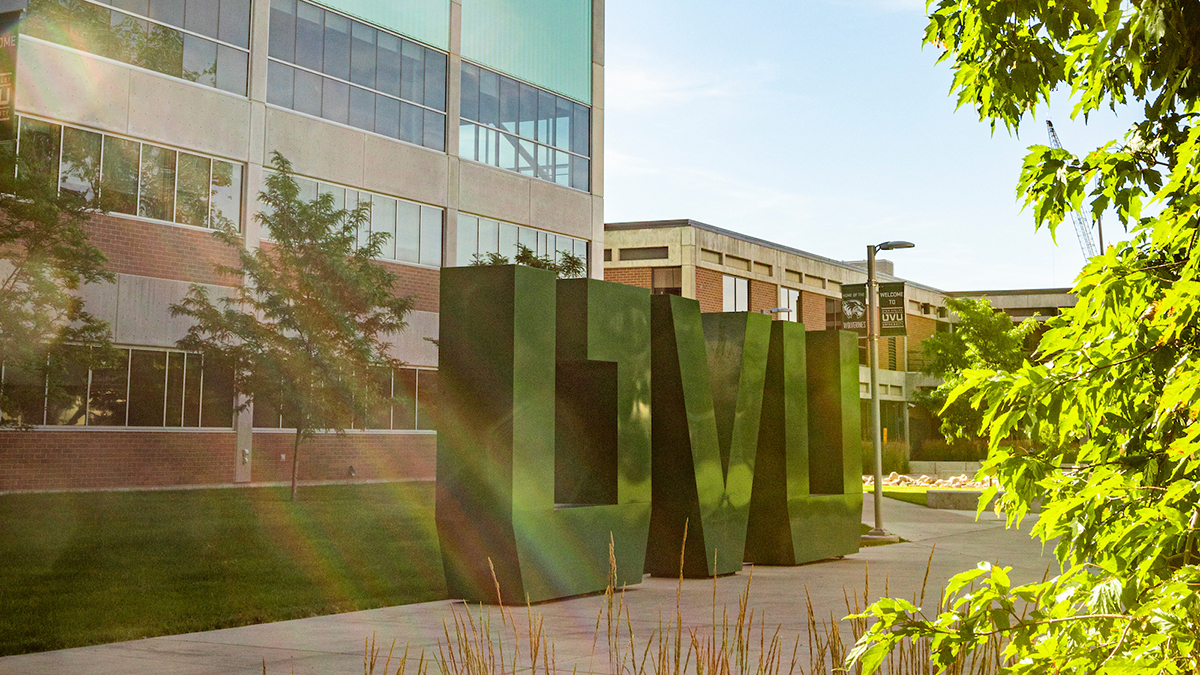With a global pandemic, difficult economic conditions, and rising political tensions worldwide, the need for mental health care has never been greater. A new program at UVU is helping to address that need.

With a global pandemic, difficult economic conditions, and rising political tensions worldwide, the need for mental health care has never been greater. Yet, according to national reports, it’s never been more difficult to find a therapist.
A new program at Utah Valley University (UVU) is helping to address that need. Twenty-one students in the initial cohort of UVU’s Master of Clinical Mental Health Counseling (CMHC) program are providing thousands of hours of care for the UVU community and beyond.
“The need is there,” says Kiera Davis, associate director of the CMHC program. “People just are recognizing their own needs, and there's not as much of a stigma as there used to be centered around mental health.”
The Center for Disease Control and Prevention (CDC) reports that in 2021, more than 11% of adults in the United States reported regular feelings of worry, nervousness, or anxiety. A 2018 survey reported that more than 55% of all visits to physician offices in the U.S. were for mental health reasons.
“Mental health is important in today's world because it's important to realize when you've reached your limits,” says CMHC student Linda Good. “Today's world is hard — people need to be able to take a break.”
Davis says UVU’s CMHC program was designed with non-traditional students in mind. Courses for the two-year program are all held in the evening, and the majority of the 21 students in this first cohort are non-traditional.
“This program was designed to be inclusive of different schedules, inclusive of different backgrounds of all kinds,” Davis says.
Davis says while a degree in clinical mental health counseling is similar to one in marriage and family therapy or social work, CMHC focuses on the diagnosis and treatment of individuals. In addition to rigorous training in Western mental health practices, the program includes a course on Eastern counseling techniques. “It’s a really good eye-opening experience that there are other ways of approaching therapy and counseling,” she says.
Each student will provide 5-15 hours of counseling per week to the UVU community, working with entities such as Discovery Day Treatment, Alliance Behavioral Health, Circle of Life Counseling Center, The Center for Couples and Families, and Cedar Psychiatry.
CMHC student Rory Hileman says his classroom work prepared him for making diagnoses and planning treatments, but his hands-on work with clients taught him things he couldn’t have learned otherwise.
“I had to learn about the shame and negative emotions that the clients have around having a disorder,” Hileman says. “Basically, it's not just the client's presenting issue, but also how they feel about their struggles that impacts counseling.”
Many of the clients UVU students see come from underprivileged or marginalized communities, including LGBTQ+ people. It’s estimated that by graduation from the CMHC program, UVU students will have worked with more than 7,000 individuals and families.
“I love helping people, and this subject was the best way to do it,” Good says.
Upon completing the CMHC program, UVU graduates will be eligible for licensure as clinical mental health counselors and able to practice in the state of Utah, either on their own or as part of a practice or clinic.
“Mental health counseling isn't just diagnosing and ‘fixing’ disorders,” Hileman says. “It’s effectively processing the world around you. Mental health counseling is more and more important as the world becomes more divided. And when division has finally settled down a bit, mental health will still be necessary, because people will need to process how to go about forgiving.”
For more information on UVU’s Master of Clinical Mental Health program, visit the program’s website.